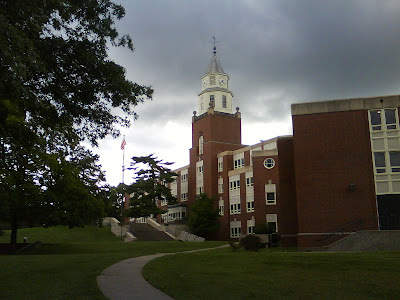Statement Of Purpose is mirror of your personality, Writing SOP is not an easy task. Here are some samples essay's,
Tips of Statement Of Purpose: Statement of Purpose (SOP) is a 1-2 page essay, paragraph stating your purpose of coming to the university Graduate School (masters or doctoral PhD)... Ha Ha difficult definition???
What is SOP? Generally You just have to write about yourself. Your study, work experience, hobbies, achievements and your Goal that's it. Everybody submit the SOP, so what make your statement different... mmm you have to think about that, whats your strength???, Wat are the things with which you can impress the reader and make your him so irresistible that he wants to admit you.
Be yourself, Don't copy:
Good grammar and effective words are the keys to impress committee. Write what will impress them, not what impress you. How will you know that what will impress them??? Go the school web site, faculty page and look what is their research interest. Refer those things on your SOP or essay for example if his research work is on some specific instrument IR (Infrared) spectrometer. Include famous IR books and your exposure to IR in your statement, this will enhance your chances to get admit.
Start writing from your childhood:
Then go on in chronological order: Start including your achievements in school which made you to go for Grad school, for example "my 1st performance on school stage was a debate on terrorism, I was greatly applauded by my teachers, friends and all students, From then I started dreaming myself as a journalist"
Include work experience, projects handled:
If you have some work experience... great, include everything in your statement. If not... its ok include the projects u were exposed to in your college your goal, what you wanna be: Connecting everything written above
disclose your aim, goal:
and what you wanna be. End with explaining your likings in the grad school, teachers research etc:
Ok now its time of flattering:
"I have read through synopsis of research work being carried out by professors... xyz. Research interest of these professors appeared quite absorbing to me. I would like to contribute in to his research by doing ...xyz work. I look forward to join Masters/PhD at University of XYZ.
This is the general format for SOP essay
Intent – This starts with writing introduction, the most important. So your introduction should give a very good first impression about the candidate. You should write clearly your intent. What you want to do (MS/PhD) and in which field. Just saying that you want to do PhD in Computer Networks is not enough. Be a bit more specific by saying things like distributed protocols or wireless sensor networks.
Undergraduate coursework and/or projects – As most of us do not have very good exposure or experience in research work, this item takes a good amount of space for most of us.
Research/Professional work – As you will be applying for a research-based graduate degree, showing that you have some experience in research and have very strong potential are very important. If you are a student I want you to put your thesis work here. Professional experience also falls in this category.
Intended research work – This is where you describe what you like most and what you would like to do as your research work if you are admitted.
Why you like University X – This is where you tell why you want admission at that specific university, mentioning their strengths, relating to your interest.
Conclusion – This is like reviewing what you said you so far, and may be adding some personal strength that you feel worth mentioning.
To get sample SOP's click here
I am continuously updating this page, I will put some of the best, handpicked, impressive statement of perpose in next few days, so keep on cheking this page or bookmark this page
Have a question? or want to share your experience?
Please ask your queries in comments section.

